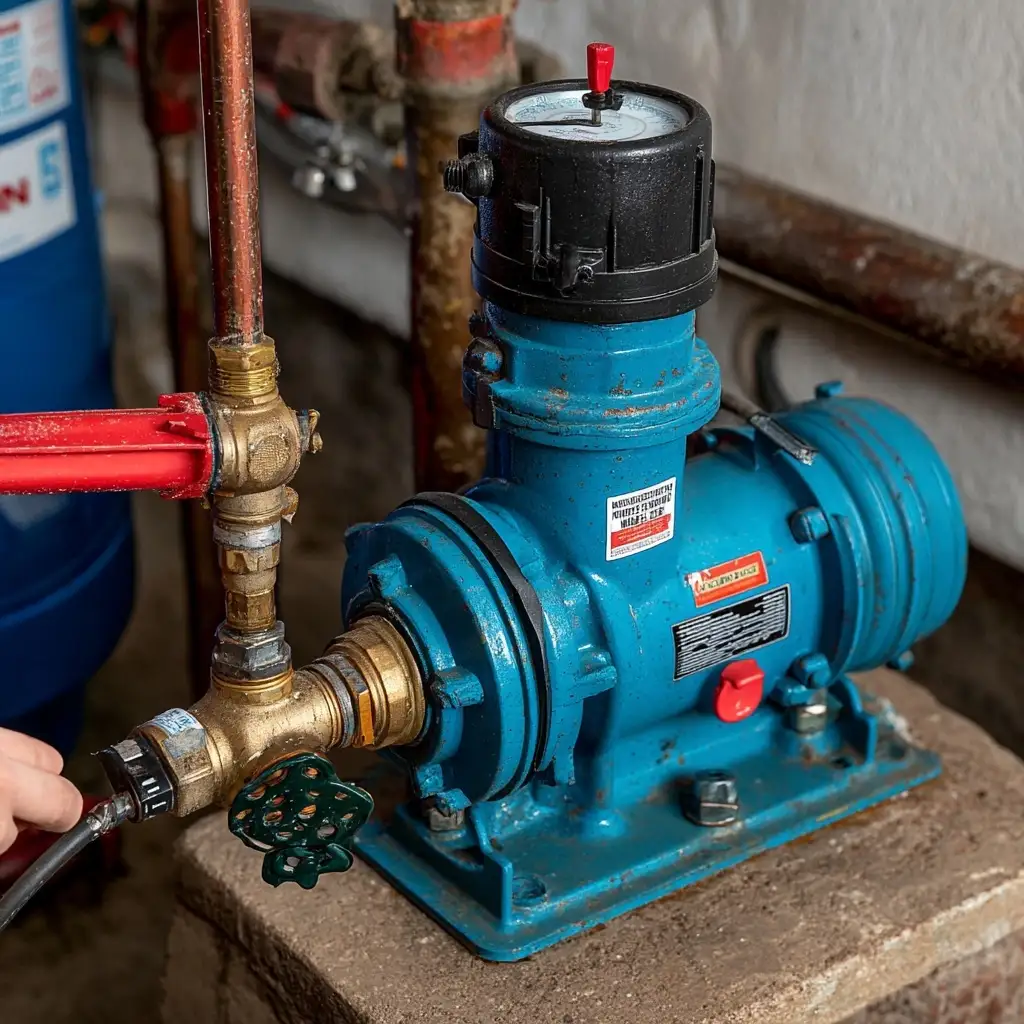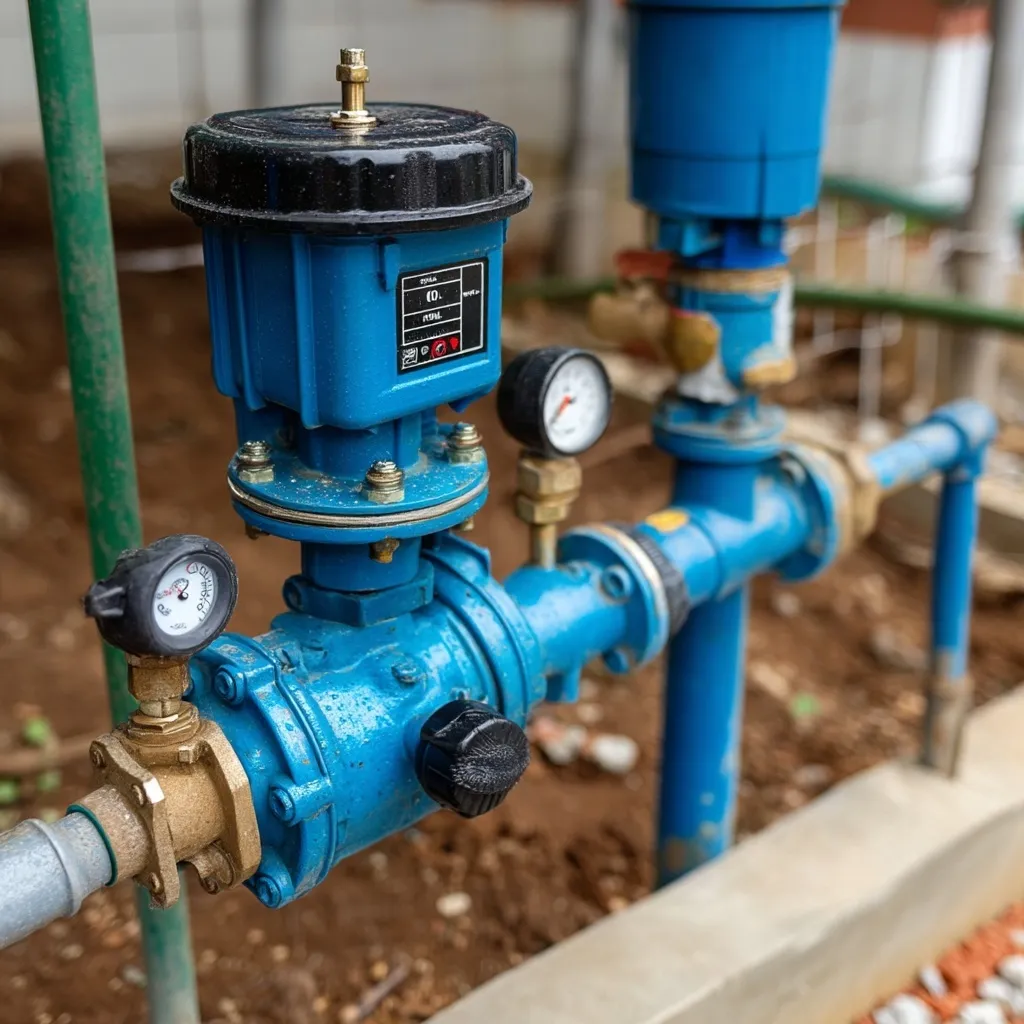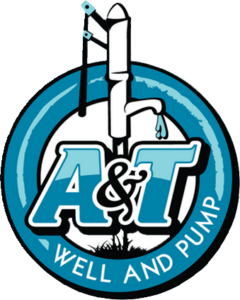
Well Repair Service In Raleigh, NC
Reliable, professional well repair service for low water pressure, discolored or dirty water, unusual noises, sudden change in water taste, or other well issues is essential to keep your water system running safely and efficiently.
"*" indicates required fields
At A&T Well and Pump, our experienced Raleigh well technicians deliver fast service, transparent pricing, and long-lasting solutions for homeowners and businesses throughout the Research Triangle.
The Importance of Trusted Well Repair Services

A failing well system can quickly affect your water supply, water pressure, and water quality. Addressing problems early with the help of a trusted and reputable Raleigh well service company reduces repair costs, prevents bigger system failures, and keeps your well pump working correctly.
A&T Well and Pump offers:
- Quick response for emergency well services in the Greater Raleigh area
- Professional service backed by experienced technicians
- Well repair services designed to keep your system working perfectly
- Clear explanation of the issue before work begins
- Reliable pump repair experts who handle minor repairs and major solutions
Contact Our Well Repair Technicians Today For A Quote!
Common Warning Signs You Need a Well Repair Service

Before major problems occur, your well system often shows early warning signs. Recognizing them early can help you schedule well repair services before damage worsens:
- Low or inconsistent water pressure
- Pump short cycling or running constantly
- Discolored or dirty water
- Unusual noises from the well or plumbing
- Sudden change in water taste or odor
Our Raleigh Well Repair Services
Our experienced technicians diagnose the root cause of your well pump and well system problems, then recommend the most efficient well repair service for your home.
Well Repair for Discolored or Stained Water
Often caused by iron, manganese, or sediment buildup. We inspect your well pump, casing, and water filtration components to restore clean water. When needed, we install or service water filtration and treatment equipment, flush the system, and make any necessary repairs so your water looks and tastes the way it should.
Well Repair for Low or Poor Water Pressure
Low water pressure can result from failing pumps, clogged pipes, or pressure tank issues. We provide targeted well pump repair, pressure tank diagnostics, and system balancing. Our experienced technicians test your entire well system—from the pump to the pressure tank and pressure switch—to ensure your home gets consistent, reliable water pressure.
Well Repair for Sand or Dirt in Your Water
Sand or dirt in the water is often a sign of damaged well screens, a compromised casing, or pump placement too deep near sediment layers. We clean the system, evaluate pump depth, and repair or replace components as needed to restore proper function. If required, we can also add sediment filtration to protect your plumbing and fixtures.
Structural Well Repair for Sinkholes Near the Well
Sinkholes indicate structural issues, soil erosion, or failing casings—problems requiring immediate professional service. Our team will carefully inspect the wellhead, casing, and surrounding ground, then perform the necessary repairs to stabilize the system and protect both your water supply and your property.
Emergency Well Repair When You Have No Water
A dry well, electrical issue, faulty pressure switch, or damaged pump can cause complete water loss. Our team offers fast service with 24/7 emergency well repairs to restore water supply in just a few hours whenever possible. We troubleshoot the full well system, perform on-site pump repairs or pump replacement if needed, and confirm everything is working correctly before we leave.
Video Inspections for Accurate Well Repairs

When the source of your water well issues isn’t obvious, we use state-of-the-art video equipment to inspect deep wells and internal components.
Our video well inspections help us:
- Identify cracks, corrosion, or casing failures
- Locate sediment buildup or obstructions
- Confirm whether a new well pump is needed
- Ensure the entire system is working perfectly
Video inspections allow us to provide quality service while keeping repair costs as low as possible.
Well Repair Service FAQs
How much does well repair cost in Raleigh, NC?
Repair costs depend on the issue—simple pressure switch fixes or minor repairs are inexpensive, while pump replacement or casing repairs cost more. At A&T Well and Pump, we provide transparent pricing before the job begins.
Does homeowners insurance cover well repair?
Insurance may cover well repair service if the damage results from a covered event (like a fallen tree or storm). Wear-and-tear and aging equipment are usually not covered.
What is the most common problem with well water?
The most common water issues involve bacteria, sediment buildup, or mineral changes that affect water quality and water pressure.
Do you repair jet pumps and submersible pumps?
Yes—we service jet pumps, submersible pumps, and all major pump systems for deep wells and shallow wells.
Can you help improve my water quality?
Yes. We offer water quality testing and water filtration solutions to maintain clean, reliable well water.
Contact Our Raleigh Well Repair Experts Today (919) 980-0981
If you're dealing with water pressure issues, pump problems, water contamination, or no water at all, contact A&T Well and Pump for fast, reliable repair services. Our team delivers excellent work, professional support, and long-lasting solutions for your well system.
We proudly serve Raleigh, NC and surrounding areas including Wake Forest, Clayton, Garner, Durham, Knightdale, and Fuquay-Varina.
Call today to get a quote on well repair services at (919) 980-0981 or contact us through our to get started.
